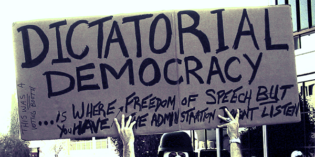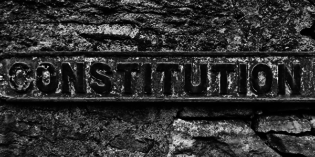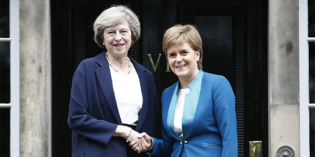Tag: Brexit

Three fast lessons and three slow lessons for UK democracy in 2019
The Brexit process has exposed serious flaws to the UK’s democratic institutions. In this post, based on a speech given at the launch of The UK’s Changing Democracy: The 2018 Democratic Audit, Joelle Grogan outlines six democratic lessons we should learn in 2019. The book is published by LSE Press, and can be downloaded for free here.

Theresa May and the curse of the takeover Prime Minister
After a tumultuous week for Prime Minister Theresa May, who has survived a confidence vote of her parliamentary party but lost the support of a third of her MPs, Ben Worthy assesses her leadership in comparison to other Prime Ministers who succeeded to office through internal party procedures rather than at a general election.

The Great Brexit Crisis: we are in for an unprecedented shake up of the UK constitution, laws, conventions and politics
The UK seems to be rapidly heading for one of the most tangled and tumultuous political periods in modern history as Brexit nears its apogee, writes Colin Talbot. Whether you think we’re headed to Valhalla or Ragnarok, the constitution, law, conventions and politics are all set to be tested in ways rarely seen. In this blog, he presents a quick guide to some of the institutions that will be severely tested over the next days and weeks.

A strange irony: How the EU withdrawal process ended up saving the Human Rights Act
Even though it looks increasingly likely the Brexit deal will not survive its first hurdle in parliament, there is yet more evidence in its pages that Brexit has saved the Human Rights Act and secured Britain’s long term future as party to the European Convention on Human Rights (ECHR), writes Frederick Cowell. In the Political Declaration on the Framework of Future relations with the EU, the document accompanying the withdrawal agreement, under the heading ‘core values and rights there is a commitment to ‘respect the framework of the European Convention on Human Rights’. In the text of the withdrawal agreement itself – which would be a legally binding on the government – there are provisions in the Protocols on Northern Ireland, which seem to assume the UK remains a party to the ECHR.

Book Review | Europe and Northern Ireland’s Future: Negotiating Brexit’s Unique Case by Mary C. Murphy
In Europe and Northern Ireland’s Future: Negotiating Brexit’s Unique Case, Mary C. Murphy offers a multi-layered account of the consequences of the Brexit referendum vote for Northern Irish politics and the relationship with the European Union. The book’s analysis shows great sensitivity, intellectual rigour and acute understanding, writes Matthew G O’Neill.

The Brexit vote and Trump’s election were decided democratically. So why don’t they feel that way?
The Brexit referendum and Trump’s election were each decided by a free and fair vote, yet large proportions of UK and US citizens have trouble accepting them as truly ‘democratic’. A working democracy requires more than free elections; it requires additional institutions, such as well-functioning political public sphere and a responsive political party system, to channel citizens’ voices into productive public debate and foster a sense of ‘collective democratic will’, writes Brian Milstein. If these institutions are in a state of decay, democratic politics can start to appear unfocused and erratic – we can even find ourselves subject to decisions that were ‘formally’ democratic, yet somehow don’t ‘feel’ democratic, he argues.

Schrodinger’s devolution and the potential for ongoing political instability after Brexit
Territorial governance in the UK has taken the form of ‘Schrodinger’s devolution’, where the devolved nations both have and have not experienced fundamental constitutional change. But Brexit highlights the need for exact decisions where ambiguity has so far existed, explain Mark Sandford and Cathy Gormley-Heenan.

How transparent and free from corruption is UK government?
For citizens to get involved in governing themselves and participating in politics, they must be able to find out easily what government agencies and other public bodies are doing. Citizens, NGOs and firms also need to be sure that laws and regulations are being applied impartially and without corruption.In an article from our book, The UK’s Changing Democracy: The 2018 Democratic Audit, Ben Worthy and the Democratic Audit team consider how well the UK government performs on transparency and openness, and how effectively anti-corruption policies operate in government and business.

The UK is heading towards a constitutional crisis over Brexit
As the clock runs down on Article 50, a political crisis is looking increasingly likely. However, Iain Begg argues that this could become a more damaging constitutional crisis if Parliament is unable to settle how Brexit proceeds.



 Democratic Audit's core funding is provided by the Joseph Rowntree Charitable Trust. Additional funding is provided by the London School of Economics.
Democratic Audit's core funding is provided by the Joseph Rowntree Charitable Trust. Additional funding is provided by the London School of Economics.